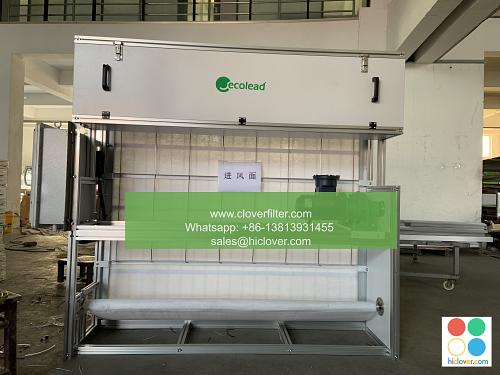Air Filter Customer Service Digitalization: Optimizing Customer Expectations

The rapid evolution of technology has transformed the way businesses operate, and the air filter industry is no exception. Air filter customer service digitalization has become a vital aspect of ensuring customer satisfaction and loyalty. By leveraging digital tools and platforms, air filter companies can optimize customer expectations, improve response times, and provide personalized support. In this article, we will explore the benefits of digitalization in air filter customer service, highlighting various application areas and key trends such as Artificial Intelligence (AI), Internet of Things (IoT), and Big Data Analytics.
Digital Channels for Customer Engagement
The digitalization of air filter customer service has led to the emergence of multiple digital channels for customer engagement. These include social media, email support, live chat, and mobile apps. By utilizing these channels, customers can easily reach out to air filter companies, report issues, and receive prompt assistance. For instance, a customer can use Facebook Messenger to inquire about the status of their air filter order or Twitter to report a problem with their air purification system.
Benefits of Digitalization in Air Filter Customer Service
The digitalization of air filter customer service offers numerous benefits, including:
* 24/7 Support: Digital channels enable customers to receive support at any time, from anywhere.
* Faster Response Times: Digital tools facilitate rapid response times, ensuring that customer issues are resolved quickly.
* Personalized Support: AI-powered chatbots and Big Data Analytics enable air filter companies to provide personalized support, tailored to individual customer needs.
* Improved Customer Satisfaction: Digitalization helps to ensure that customer expectations are met, leading to increased satisfaction and loyalty.
Application Areas of Digitalization in Air Filter Customer Service
Digitalization has numerous application areas in air filter customer service, including:
* Remote Monitoring: IoT sensors can be used to remotely monitor air filter systems, enabling predictive maintenance and reducing downtime.
* Virtual Assistance: AI-powered virtual assistants can provide customers with personalized support, answering frequent questions and resolving common issues.
* Automated Troubleshooting: Digital tools can be used to automate troubleshooting, reducing the need for human intervention and minimizing resolution times.
* Customer Feedback Analysis: Big Data Analytics can be used to analyze customer feedback, identifying areas for improvement and informing product development.
Key Trends in Air Filter Customer Service Digitalization
Several key trends are driving the digitalization of air filter customer service, including:
* AI-Driven Support: The use of AI-powered chatbots and virtual assistants to provide personalized support.
* IoT-Enabled Monitoring: The use of IoT sensors to remotely monitor air filter systems and predict maintenance needs.
* Big Data Analytics: The use of Big Data Analytics to analyze customer feedback and inform product development.
* Mobile-First Strategies: The development of mobile apps and mobile-friendly websites to provide customers with easy access to support and information.
Conclusion
In conclusion, air filter customer service digitalization is a critical aspect of ensuring customer satisfaction and loyalty. By leveraging digital tools and platforms, air filter companies can optimize customer expectations, improve response times, and provide personalized support. As the industry continues to evolve, we can expect to see increased adoption of AI, IoT, and Big Data Analytics in air filter customer service, driving innovation and improvement in various application areas. It seems like you haven’t provided a prompt or question for me to respond to. Please go ahead and provide more context or ask a question, and I’ll do my best to assist you.

